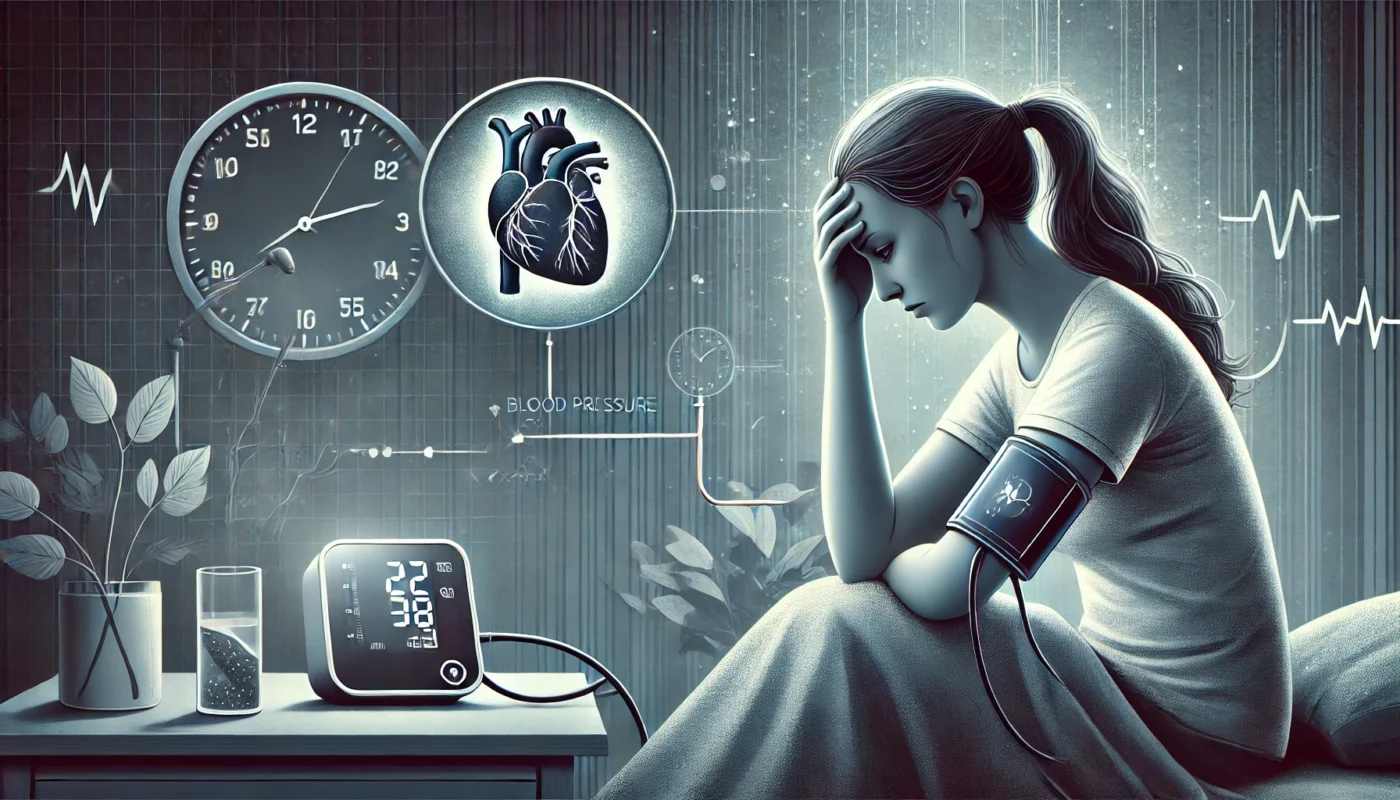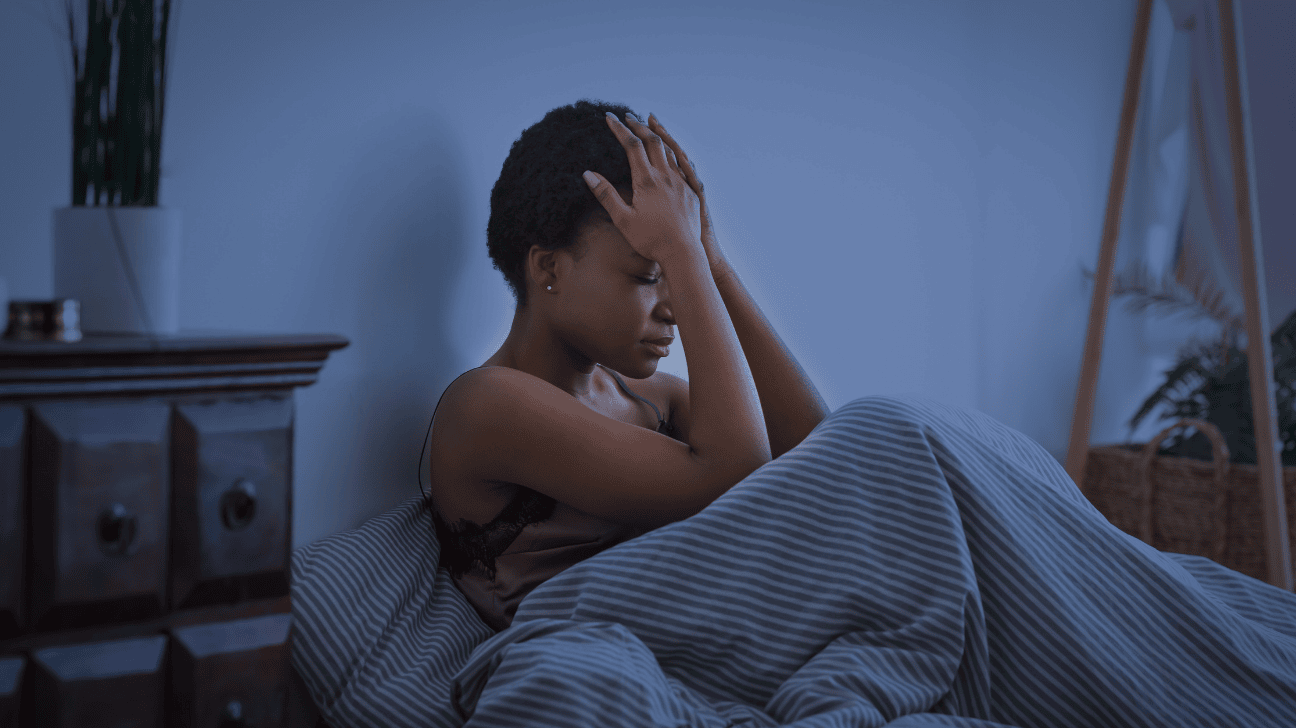Hypertension, or high blood pressure, affects nearly half of adults worldwide and is a leading risk factor for cardiovascular disease, stroke, and kidney failure. While lifestyle factors such as diet, physical activity, and stress are well-documented contributors to hypertension, poor sleep is increasingly recognized as a critical yet often overlooked factor. Sleep is essential for the body’s restorative processes, including the regulation of blood pressure and vascular health. This article explores the complex relationship between sleep and hypertension, the mechanisms linking sleep disorders to high blood pressure, and evidence-based strategies to improve sleep quality and manage hypertension.
You May Also Like:
Hypertension and Smoking: The Double-Edged Sword
The Interaction Between Magnesium Glycinate and Sleep Hormones: Here’s the Science
Hypertension and Sleep: Why Poor Sleep Could Be Raising Your Blood Pressure is an original (HSLHealing) article.
The Connection Between Sleep and Blood Pressure
Blood pressure naturally fluctuates throughout the day, with the lowest readings occurring during sleep. This phenomenon, known as nocturnal dipping, allows the cardiovascular system to recover from the daily demands of pumping blood. Poor sleep disrupts this process, leading to elevated nighttime blood pressure and an increased risk of hypertension.
Sleep as a Regulator of Blood Pressure
Sleep is a vital period of recovery during which the heart rate slows, blood vessels dilate, and blood pressure decreases. This nocturnal dipping typically reduces systolic blood pressure (SBP) by 10–20%. When sleep is insufficient or disrupted, this dip may not occur, a condition called non-dipping. Research in Hypertension Research (2019) showed that non-dippers were at a higher risk of cardiovascular complications, such as heart attack and stroke, compared to individuals with normal nocturnal blood pressure patterns.
How Poor Sleep Impacts Hypertension
- Sympathetic Nervous System Activation:
Poor sleep, particularly fragmented sleep, increases activity in the sympathetic nervous system, which governs the fight-or-flight response. This leads to elevated heart rate and persistent vasoconstriction, raising blood pressure. - Hormonal Dysregulation:
Sleep deprivation alters the balance of hormones that regulate blood pressure, such as cortisol and aldosterone. A study published in The Journal of Clinical Endocrinology & Metabolism (2018) found that individuals who slept fewer than six hours per night had significantly higher cortisol levels, contributing to sustained hypertension. - Systemic Inflammation:
Chronic sleep deprivation promotes inflammation, damaging blood vessels and impairing their ability to dilate. Elevated inflammatory markers, such as C-reactive protein (CRP), are associated with both poor sleep and hypertension.

Sleep Disorders Linked to Hypertension
Several sleep disorders are directly associated with an increased risk of hypertension. Understanding these conditions is essential for identifying and managing their impact on blood pressure.
1. Obstructive Sleep Apnea (OSA)
OSA is a common sleep disorder characterized by repeated episodes of partial or complete airway obstruction during sleep, leading to oxygen deprivation and fragmented sleep.
- Prevalence and Impact:
OSA affects approximately 30% of individuals with hypertension. Each apnea episode triggers a surge in blood pressure due to the activation of the sympathetic nervous system. A meta-analysis in Chest (2020) found that untreated OSA increased the risk of resistant hypertension, a condition where blood pressure remains high despite using three or more medications. - Treatment:
Continuous positive airway pressure (CPAP) therapy is the gold standard for treating OSA. Research in The Lancet Respiratory Medicine (2019) showed that CPAP use reduced nighttime SBP by an average of 6 mmHg in individuals with OSA.
2. Insomnia
Insomnia, characterized by difficulty falling or staying asleep, is another sleep disorder linked to hypertension. Chronic insomnia disrupts the sleep-wake cycle, leading to elevated nighttime blood pressure.
- Evidence:
A study in Sleep Medicine Reviews (2018) reported that individuals with chronic insomnia were 50% more likely to develop hypertension compared to those without sleep disturbances. - Management:
Cognitive-behavioral therapy for insomnia (CBT-I) has been shown to improve sleep quality and reduce blood pressure. CBT-I combines strategies such as stimulus control, sleep restriction, and relaxation techniques.
3. Restless Legs Syndrome (RLS)
RLS is a neurological disorder characterized by an irresistible urge to move the legs, particularly at night. The condition disrupts sleep and is associated with increased sympathetic nervous system activity.
- Hypertension Risk:
Research in Hypertension (2017) found that individuals with severe RLS had a 30% higher risk of developing hypertension, potentially due to the stress and arousal caused by frequent nighttime movements.

The Role of Sleep Duration in Hypertension
Both short and long sleep durations are linked to an increased risk of hypertension, emphasizing the importance of achieving the right balance.
Short Sleep Duration
Sleeping fewer than six hours per night is consistently associated with higher blood pressure. Short sleep duration limits the time for nocturnal dipping and recovery.
- Evidence:
A longitudinal study in Circulation (2019) found that individuals sleeping fewer than six hours were 1.5 times more likely to develop hypertension compared to those sleeping seven to eight hours.
Long Sleep Duration
Sleeping more than nine hours per night may also be detrimental, as it can indicate underlying health conditions or lead to reduced physical activity and obesity.
- Evidence:
Research in The American Journal of Hypertension (2020) showed a U-shaped relationship between sleep duration and blood pressure, with both short and long sleepers experiencing higher hypertension risk.
Supplements to Support Sleep and Blood Pressure Management
Certain supplements can enhance sleep quality while supporting cardiovascular health. Below are five evidence-based options:
1. Magnesium Glycinate
Magnesium supports relaxation by regulating neurotransmitters and reducing muscle tension. A study in Magnesium Research (2016) found that magnesium supplementation improved sleep quality and reduced SBP by 5 mmHg.
2. Melatonin
Melatonin is a natural hormone that regulates the sleep-wake cycle. Research in Hypertension Research (2019) demonstrated that melatonin supplementation reduced nighttime blood pressure in individuals with hypertension.
3. L-theanine
L-theanine, an amino acid found in tea, promotes relaxation and reduces stress. A study in Nutrients (2020) reported that L-theanine supplementation improved sleep quality and reduced blood pressure in individuals with hypertension.
4. Hibiscus Extract
Hibiscus enhances nitric oxide production, improving vascular health and promoting better sleep. A clinical trial in The Journal of Nutrition (2010) showed a 6 mmHg reduction in SBP with daily hibiscus tea consumption.
5. Ashwagandha
Ashwagandha, an adaptogenic herb, reduces cortisol levels and improves sleep. A randomized controlled trial in Journal of Ethnopharmacology (2020) found that ashwagandha supplementation improved sleep quality and lowered SBP by 4 mmHg.

Strategies to Improve Sleep and Manage Hypertension
Improving sleep quality is a critical component of hypertension management. Below are evidence-based strategies for optimizing sleep and reducing blood pressure:
1. Establish a Consistent Sleep Schedule
Going to bed and waking up at the same time each day helps regulate the body’s internal clock, improving sleep quality and duration.
2. Create a Sleep-Friendly Environment
A dark, quiet, and cool bedroom promotes better sleep. Use blackout curtains, white noise machines, and temperature control to create an optimal sleep environment.
3. Limit Stimulants and Screen Time
Avoid caffeine, nicotine, and electronic devices at least two hours before bedtime. These stimulants disrupt the natural sleep-wake cycle by suppressing melatonin production.
4. Practice Relaxation Techniques
Techniques such as mindfulness, yoga, and progressive muscle relaxation reduce stress and promote better sleep. A study in Psychosomatic Medicine (2018) found that mindfulness-based stress reduction improved sleep quality and lowered SBP by 5 mmHg.
5. Address Underlying Sleep Disorders
If a sleep disorder such as OSA or insomnia is suspected, seek evaluation and treatment from a sleep specialist. Treating these conditions can significantly improve both sleep quality and blood pressure control.
Conclusion
Sleep plays a vital role in maintaining cardiovascular health, and its disruption can significantly increase the risk of hypertension. Conditions such as OSA, insomnia, and RLS, as well as insufficient or excessive sleep durations, contribute to poor blood pressure control. By addressing sleep disorders, improving sleep hygiene, and incorporating relaxation techniques, individuals can optimize their sleep and reduce hypertension-related risks. Combining these strategies with medical treatments and lifestyle changes ensures a comprehensive approach to managing both sleep and blood pressure. Prioritizing sleep is not just an investment in rest—it is an essential step toward better heart health.

References
- Hypertension Research. (2019). Nocturnal blood pressure and cardiovascular outcomes. Hypertension Research. Retrieved from https://www.nature.com/hr
- The Journal of Clinical Endocrinology & Metabolism. (2018). Cortisol and blood pressure regulation. The Journal of Clinical Endocrinology & Metabolism. Retrieved from https://academic.oup.com
- Chest. (2020). Obstructive sleep apnea and resistant hypertension. Chest. Retrieved from https://journal.chestnet.org
- Circulation. (2019). Sleep duration and hypertension risk: A longitudinal study. Circulation. Retrieved from https://www.ahajournals.org
- Sleep Medicine Reviews. (2018). Insomnia and hypertension: A systematic review. Sleep Medicine Reviews. Retrieved from https://www.sciencedirect.com
Important Note: The information contained in this article is for general informational purposes only, and should not be construed as health or medical advice, nor is it intended to diagnose, prevent, treat, or cure any disease or health condition. Before embarking on any diet, fitness regimen, or program of nutritional supplementation, it is advisable to consult your healthcare professional in order to determine its safety and probable efficacy in terms of your individual state of health.
Regarding Nutritional Supplements Or Other Non-Prescription Health Products: If any nutritional supplements or other non-prescription health products are mentioned in the foregoing article, any claims or statements made about them have not been evaluated by the U.S. Food and Drug Administration, and such nutritional supplements or other health products are not intended to diagnose, treat, cure, or prevent any disease.

